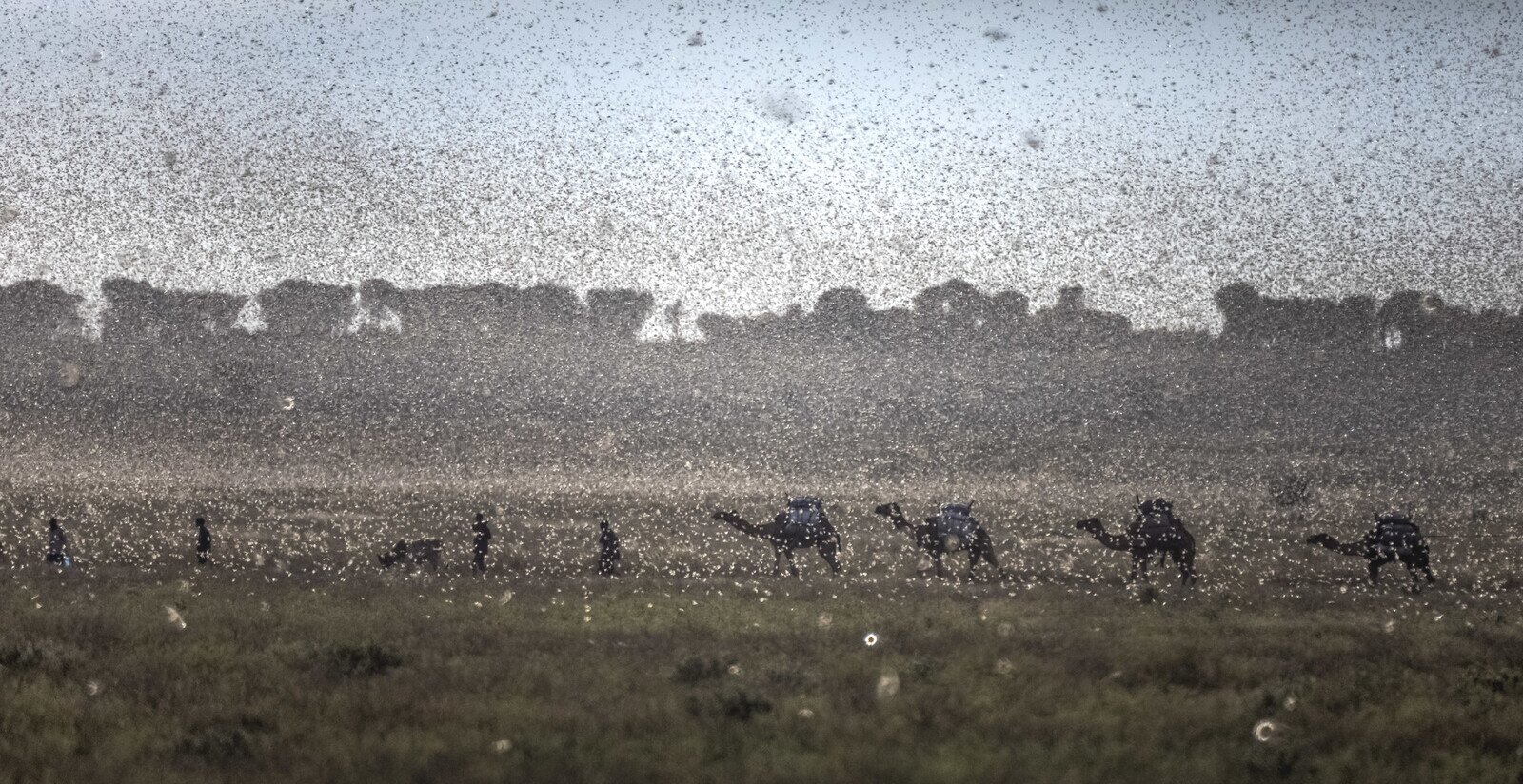2020年5月27日
New swarms of locusts threaten to increase hunger in East Africa reeling from floods and coronavirus (只有英文)
Flooding and Covid-19 restrictions create perfect conditions for locusts to multiply
Oxfam warned today that millions of people in East and Central Africa, already suffering due to flooding and the impact of coronavirus, are at risk of increased hunger and poverty as the region braces for the latest generation of locusts which are due to hatch in June – just when crops are to be harvested.
The highest rainfall in 40 years in parts of the region has caused severe flooding which has killed over 400 people, forced half a million people from their homes and destroyed crops and livelihoods.
The heavy rains, exacerbated by climate change, have also created the perfect conditions for the breeding of locusts, raising fears that the swarms could be 400 times larger than the original swarms. The locust outbreak, already the biggest in 70 years, has decimated thousands of hectares of crops throughout larger swathes of the region, especially Kenya, Ethiopia and Somalia.
Restrictions imposed by governments to contain coronavirus are also hampering efforts to stop the spread of locusts. Stocks of pesticides are dwindling as border closures have strangled the supply chain and overnight curfews restrict the ability of pilots to spray insecticide in key breeding areas.
The floods and the new wave of locust infestation will lead to increased food shortages in a region where over 33 million people are already severely food insecure. At the same time, the economic fallout from governments’ efforts to contain the pandemic is likely to push millions of people further into poverty as there are few or no social safety nets to protect them.
Lydia Zigomo, Oxfam’s Regional Director in the Horn, East and Central Africa said: “The region is facing multiple concurrent crises – each compounding the other and making it more difficult to tackle and contain. Together they form a lethal combination that threatens to increase hunger, poverty and suffering for millions of the most vulnerable people.
“In a grim coincidence, the recent rains have created the perfect breeding conditions for locusts while restrictions introduced to contain coronavirus have hampered efforts to control their spread.”
Last week, The World Bank announced $500 million in grants and low-interest loans to help countries in Africa and the Middle East combat the impact of locusts. Kenya and Uganda have received large loans from the International Monetary Fund to support their responses to Covid-19, including the expansion of social protection programmes.
Oxfam is calling on more international donors to support governments in the region in providing immediate assistance, including increased cash grants, to help the poorest and most vulnerable people survive the multiple crises.
Frudusa Mali Muhamed, a Somali farmer living in Ethiopia, whose entire onion crop was devasted by locusts, said: “All my three hectares of onion are now gone. After the locust attack, the farm soon turned into a breeding ground for swarms that later killed all the onion buds and roots.”
Despite the lockdown restrictions, Frudusa has been forced to sell tea on the street to support her family and recover the money she lost.
Oxfam is working closely with local partners in Ethiopia, Kenya, Uganda and Somalia, to provide cash assistance to more than 6000 households to buy food. Oxfam is also distributing soap, hygiene kits and clean water to hospitals and communities. Oxfam staff have been increasing public awareness to help prevent the spread of coronavirus, including broadcasting messages in local languages with megaphones in rural villages.
To overcome some of the lockdown challenges, Oxfam is working with mobile phone operators to supply e-vouchers for soap and water through “water ATMs” – pre-paid machines that dispense water to the most vulnerable communities.
Oxfam also developed a mobile GPS app that allows community volunteers to record data on local locust infestations which are then shared with government response teams.
Oxfam is calling for almost $46 million to help almost three million people with lifesaving aid in the region.
- End -
Notes to Editors
- Currently, the Horn, East and Central Africa region has over 9000 confirmed cases of Covid-19 and over 300 deaths, with the risk of this increasing as many countries in the region have poor health systems and are still planning to do mass testing.
- African economies will likely go into recession in 2020 with an expected loss of US$157 to US$212 billion in Africa as a result of COVID-19 according to the African Development Bank (AfDB) President Akinwumi Adesina. So far, African countries have lost around $29 billion due to the coronavirus pandemic, according to UN estimates. This is the equivalent of Uganda’s entire Gross Domestic Product.
- Over 33 million people in east and central Africa are currently severely food insecure and require food assistance. Of these, almost 17 million are in Ethiopia, Kenya, Somalia and South Sudan.

